
Robin Staps (guitar, primary songwriter) and Paul Seidel (drums), Zagreb, 17/11/2018
The 17th of November was one of the first really cold days in Zagreb this autumn. At six o’clock in the evening, the arranged interview time, it was already dark outside. Doing the interview on the benches in front of the club where The Ocean were to play later was therefore no option. The temperature in the club wasn’t much higher than that on the outside of it since the heating hadn’t been turned on yet. In addition, Rosetta, on tour with The Ocean, were having their sound check. So, Paul Seidel, The Ocean’s drummer, took me to the tour bus, parked behind the club. The bus’s seating area was cosy warm and comfortable. There, Paul (drums), Robin (guitar, primary song writer) and I had a chat about what kind of work musicians can do to get by, life in Berlin these days, The Ocean’s writing and composing process, their new album, the up-coming album, and geology as a theme for a record.
Most musicians I know or meet have to do something else to subsidize their live. Is it the same with you?
Paul: I, for my part, give drum lessons three days a week. I used to do that more frequently, but then I decided to take it down a notch, because it took too much time to teach drums, it didn’t allow me to practise that much, or… Let’s just say, it took away my creativity.
Teaching drums took away your creativity?
Paul: Yeah, you cannot always… Well, you can choose the student’s, but you also want to be fair and give everybody the chance to take lessons. Sometimes it’s a bit like being able to teach at college, but having to teach at a primary school. You’re forced to teach on all levels, although you’re specialized to teach at college. And at one point, I decided to focus on being creative.
I see… Where do you teach drums? In Berlin?
Paul: Yeah, we’re both from Berlin. We also both work at Robin’s very own label Pelagic Records.
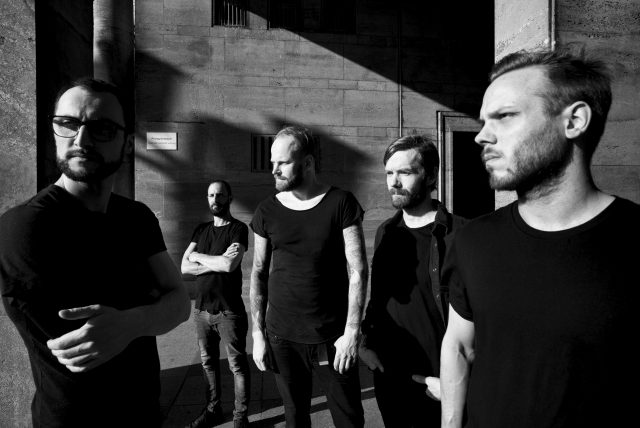
Right. That means you manage to live off the label and the music?
Paul: Pretty much so, yeah.
Robin: Everyone would have to answer that individually. The label is mainly my company, but Paul works for the label and his income is coming from the band, the label and from giving drum lessons.
Paul: Yes, everything I do has to do with music.
Robin: For me it’s similar. Loic [The Ocean’s singer], for example, has a recording studio in Switzerland, but he has also worked other jobs over the last couple of years. Mattias is a chef in Stockholm. He has a very flexible job. When he gets back from tour, he can continue working and it’s also OK if he’s away for longer periods of time. I think that’s the biggest challenge for musicians that tour a lot: to find a job that allows them the flexibility of being away for months. And that’s really hard to find if you’re not self-employed. Most people that are involved with music, from my experience, are usually self-employed graphic designers, or they do something that they can do from the road. That’s the case with Paul and me as well. The label is taking up a lot of our time. It’s grown tremendously over the last two years and it’s a challenge to be on tour and keep up with work. We also have two people at home who are taking care of logistics and the packing and shipping of parcels. They’re receiving the thirteen euro-pallets of The Ocean vinyl box sets that are arriving now. Without them, it would simply not be possible. But a lot of the work we do is laptop-based work, so we can work remotely. In the bus, you always have a table, and a hot spot on the phone…
Paul: Future technology allows us to work from everywhere.
Robin: That’s the great advantage of the digital age.
Some people I’ve talked to consider themselves privileged to be able to work like that, while others think it’s a nuisance that they have to do something else, because they can’t concentrate on the music.
Paul: It depends on where you are as a musician, because when you start out, you can not guarantee that you’ll earn money with what you do.
Robin: It also depends on how you look at your job as a musician. For me, I’ve always been interested not only in guitar playing, but also in marketing, in selling music, in management and all of that… It’s not something that has to be done, it’s something that I actually enjoy doing, not only for my own band, but for other bands as well. I was never the guy that said: I just want to play guitar in a band. But I understand that a lot of musicians are like that. They don’t want to have to worry about anything else, and that’s fair enough. Everyone needs to find their own approach.
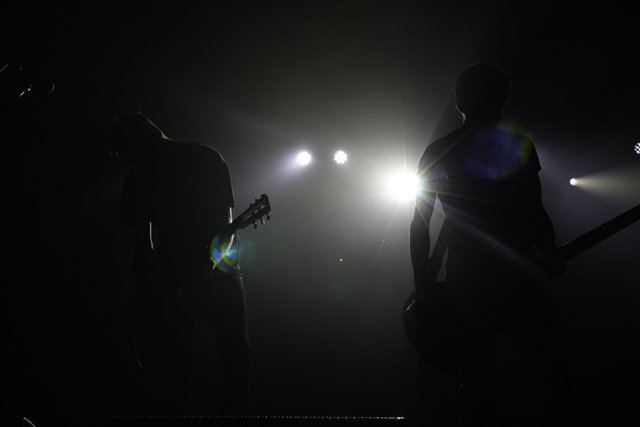
Regarding getting by as a musician, how’s life in Berlin these days? I’ve heard that it’s become a lot more expensive.
Paul: Living in Berlin has become way more expensive, but the everyday life things, like groceries, haven’t gone up, I think.
Housing costs have?
Paul: Yes, housing costs have been on the rise since forever, also costs for rehearsal rooms.
Robin: I think it’s the same in every major European city, and compared to a lot of other places, Berlin is still very affordable. Yes, real estate prices and rent have gone up continuously over the last ten years…
Paul: Unfortunately, the wages haven’t. That’s the issue.
Robin: But it’s understandable that there is such a boom. Berlin is such a hyped city right now, everyone wants to go there. It has this allure of a mysterious place with a lot of culture, and there is a lot of truth in that image, so people from all over the world come there, and a lot of them stay. That’s also because it’s relatively cheap compared to London, or Paris, or Munich. Considering this fact, this influx of people from everywhere, the increase in prices has been relatively moderate. We’re nowhere near to what happened in the 1930s in New York, in Manhattan, for example.
Paul: Yeah, but it still sucks.
Let’s talk a bit about the new album. It says in your press material that the album was written in seclusion in a house by the ocean. I’d like to know what your day looked like in that house. How much time did you spend there? What was your routine?
Robin: My routine in this house, which Paul also knows very well, we’ve been going there a lot over the past couple of years, is usually waking up in the morning, making breakfast, going for a swim, and then starting to work on music, then going for another swim, then making lunch, continuing to work on music, going for a swim…
Paul: Then having a drink…
Robin: And then having a drink at, like, two in the afternoon…
Paul: And then writing drunk… [Everybody laughs.]
Robin: And then continuing… Exactly… That’s the routine there. [More laughter.]
Robin: Yeah, it’s like that … The writing happened over the last three years or so, always in the summer months, when I have been spending time there.
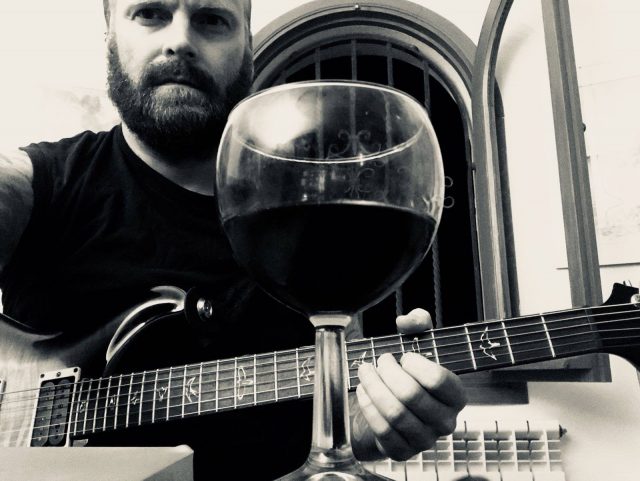
I see. You didn’t go there and shut yourself up for weeks, you went there several times.
Robin: Several times, yes. The first session happened in the summer of 2014. That’s when all of the tracks on the current record were written. Including The Quiet Observer which ended up on the split with Mono that we released in 2015. The only tracks that were rewritten and rearranged were Devonian and Silurian. They were adapted, stuff was added and changed, at the beginning of this year and the end of last year.
How did Paul come in? You said you’ve been going there together and Paul was spending time there too.
Paul: The main writing activity is always Robin, but we have a new guy in the band, Peter, he’s doing all things electronic, synths and sounds, and we had a very intense writing session, where he brought all his stuff. We sat down to work on the details of the songs, added elements and different layers of sound…
Robin: And we also wrote some tracks for the second part of the album during that same session.
Paul: Yeah, which then later on got rehearsed in Berlin.
Robin: The writing process, just so that you understand, leads to preproduction, which usually involves pre-programmed drums and pilot tracks for guitars and all the extra instruments, like brass or strings… I program them and sample them. What you get then is a pretty specific idea of the overall song. Then we start actually playing it and rehearsing it, and then the programmed drums get replaced by real drums, and in the end, in the studio, the programmed synths strings get replaced by real strings and so on. That’s the way the writing happens in the case of this band. It’s not that we meet in the rehearsal room and jam out riffs. It’s composed music that I mainly write, but there are also two tracks on the record that are Paul’s compositions. This way, everyone comes to the room to work on these tracks with a very clear idea of what we’re working on, and then we’re tweaking details, trying things, trying transitions, live testing the songs. That’s something we’ve done for the first time with the new record, to live test the songs, to rehearse them, before we record them. The previous record, Pelagial, was a studio record. It was recorded first, and then we started figuring out how to do that live. This time around we wanted to play and master the material before we actually record it, because sometimes there are things that work on paper or in the preproduction, but then they turn out no working so well when you actually play them.
Paul: I found the method very effective, because you have a certain image already in your mind, and when you come to the rehearsal room, it’s not that you cannot formulate what you are looking for. Everybody has a picture already and then when you work on details, you can formulate the details you want to change or the things you want to add, and then people can say yes or no. Because, usually, when you jam in a rehearsal room, it’s just a bunch of ideas floating around, and you have to catch these moments, where everyone agrees or locks in. This time, everybody knew their stuff and we jammed together in a different way.
Robin: We jammed together on existing material. It’s good to have more than a pair of ears for certain parts and certain things. When you work too long on your own material, you kind of get lost in it. That’s also true for the mixing process. That’s where Jens Bogren came in. He had not heard the material at all, so he had this really fresh set of ears. After that we again changed a few things, and also got rid of a lot of stuff that we had recorded, but that in the end wasn’t really necessary, or was just watering down the impact of what we were trying to do. It’s important to have people come in unbiased, listen to it and say, yeah, this is good, or, this part it too long.
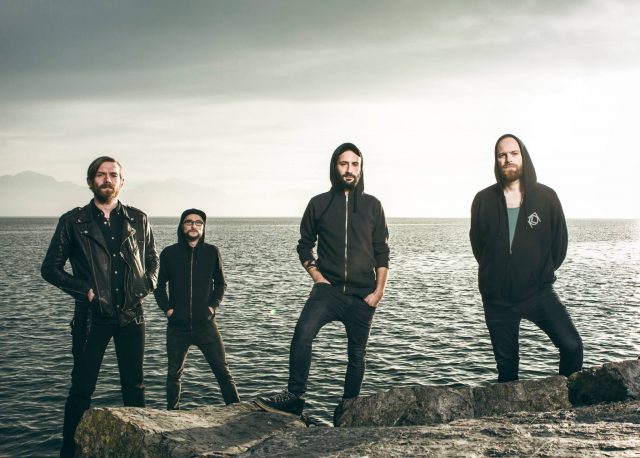
OK, another question, also regarding the album: Your albums are thematically related. Did you know that this album was going to happen and that it had to fit in between the past releases, was that planed, or is it something that came up along the way?
Robin: It came up along the way. All the material was already written, and then, when I was listening to it, I saw the proximity to Precambrian, just sound wise, regarding the riffs and the tempo and the vibe… It felt like it’s in that vein, yet, at the same time I new it wouldn’t sound like Precambrian, because we had a new drummer, a new bass player and a new vocalist in the band who had not played on that record. There was also this conceptual void between Precambrian and Heliocentric and I wanted to fill that with a bridge record so to speak, and this material was shaping up to be that… I sent Paul ten very excited voice messages telling him about my plan one morning in February…
Paul: They were about dinosaurs… [Everybody laughing again.] “I have it! I got it! This is the idea!”
Robin: Yeah, but the dinosaur record is still to come. That’s the next part.
About the next record… I find that evolution is not a linear equation. It’s chaotic. Is the chaos still to come? I somehow expect you to venture into experimental waters.
Robin: That’s exactly what you can expect. The second half of the album is definitely a lot more experimental and a lot more chaotic in terms of arrangements. The structure is more intricate and more encapsulated somehow, compared to this very stringent, very coherent first half. There is a crazy track on the upcoming record, a fourteen-and-a-half-minutes track… I think I haven’t spent as much time working on a song in my whole life as on this one… It’s also a lot more diverse in terms of tempos and styles… So, it is going to be probably more or less in line with what you expect. This first record is intentionally kept simple. I wanted to have a record with a continuous vibe from beginning to end, and the way to get there was by reduction to essentials, getting rid of unnecessary embellishments wherever possible. It also has relatively simple song structures and a continuous, steady tempo that goes through. It’s a mid-tempo record. This is all going to grow vastly out of scale on the next record.
When will it be released? Do you know already?
We’re aiming for early 2020. We have recorded drums and guitars already. We still need to record vocals and bass, which will be a challenge, because we’re touring a lot now. We’re really having a hard time setting time aside to do that, and then we still have to mix it, but the recording will probably be done in the spring and the mixing over the summer, so that we can aim for a February, March, April 2020 release.
OK, last question: What about the geology? I’ve read that you’ve studied geography, Robin, is everybody…
Paul: I can answer that question already: No. [Again, everybody laughs.]
Robin: Paul can only answer very specific questions about trilobites.
Paul: I can?
Robin: Yes. [More laughter.]
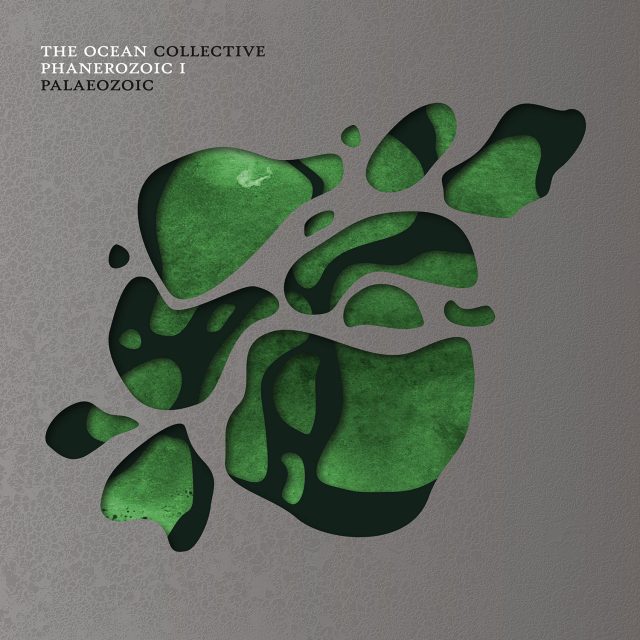
So, you’re not at all into geology, Paul?
Paul: I’m always interested in learning new stuff. I find it as interesting as Robin, I would say. I like reading about it, when he comes up with things or explains things. It’s a bit like being in school, but without having to work or getting grades…
Robin: But that’s the thing, the misconception, I think… You don’t have to be a scientist, or you don’t have to have a degree in geography to understand what the references are about. It’s something that is easily explicable even to someone who has absolutely no interest in this. The way I got there, was also not through my degree or my studies, but through visualizing the music. With Precambrian it was that I always saw images of epic, prehistoric scenes, streams of lava, volcanic eruptions, big breakers and this kind of stuff, which is a bit a cliché for heavy music, but it just works so well. And every time I close my eyes and listen to the stuff that we come up with musically, that’s the type of thing that I see in front of my inner eye. That’s how the Precambrian concept came into place, and also this concept, the next stage, so to speak.
OK, guys, thank you very much.
Paul and Robin: Thank you.
Interview Slavica

Leave a Reply